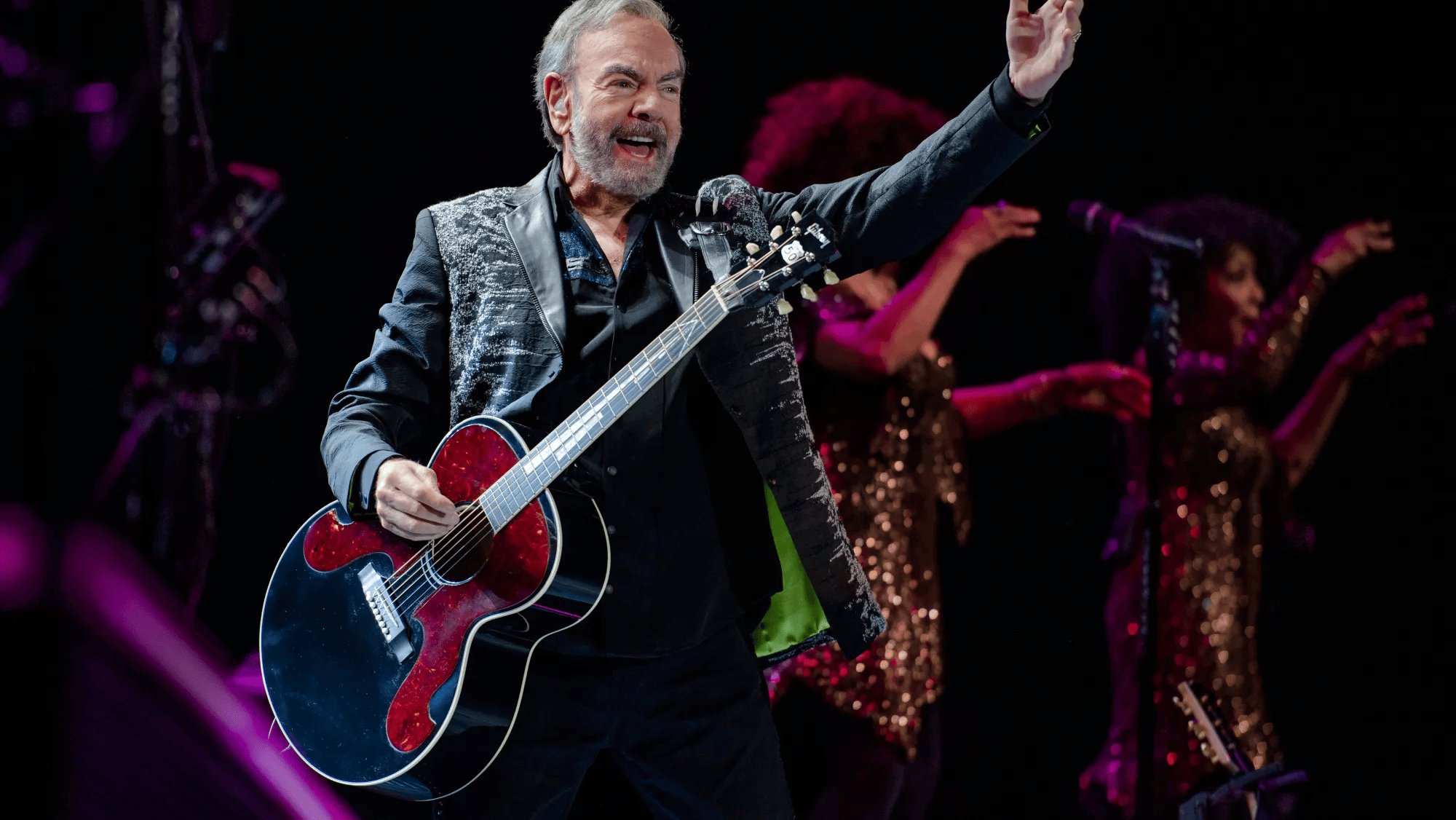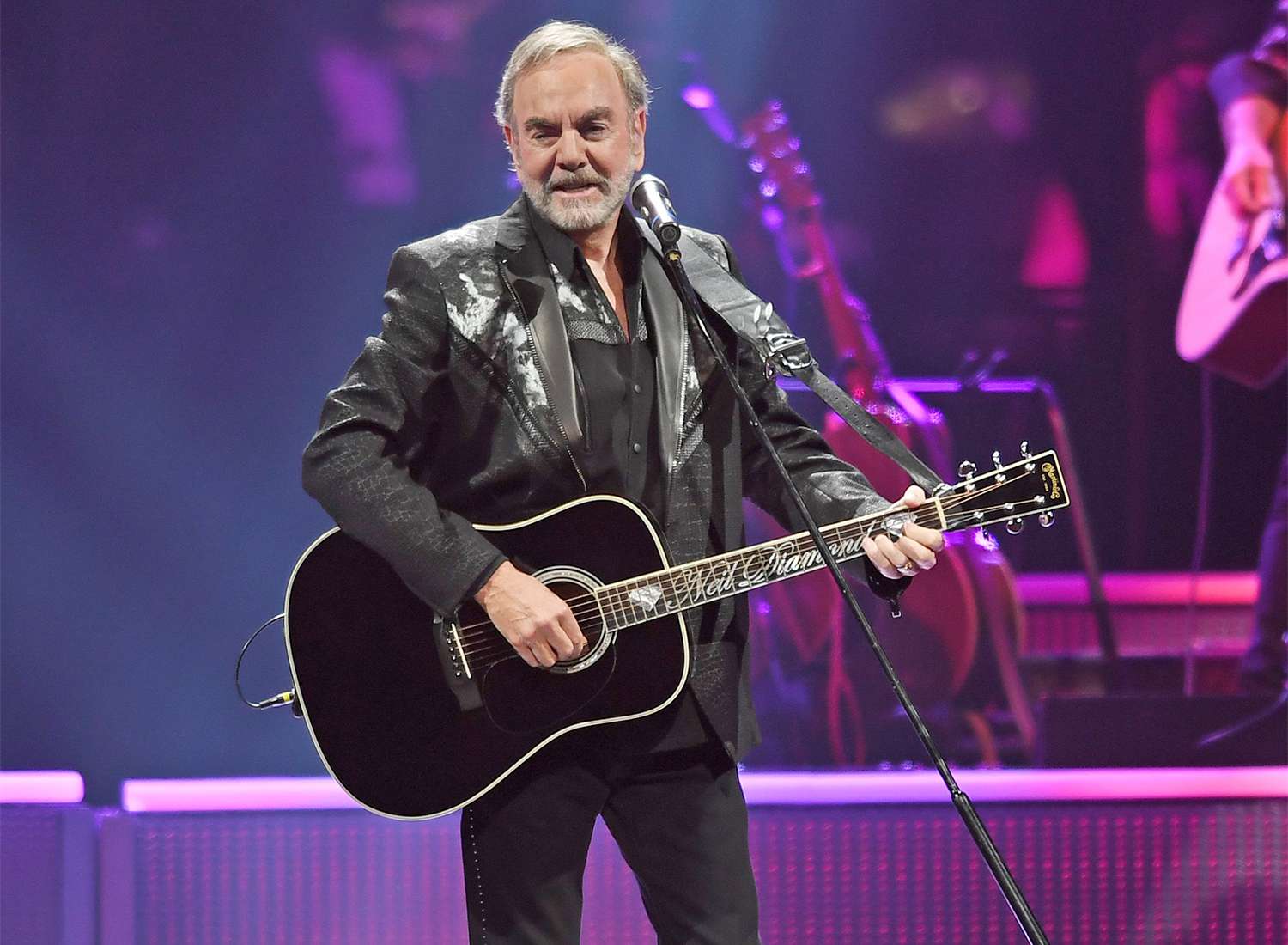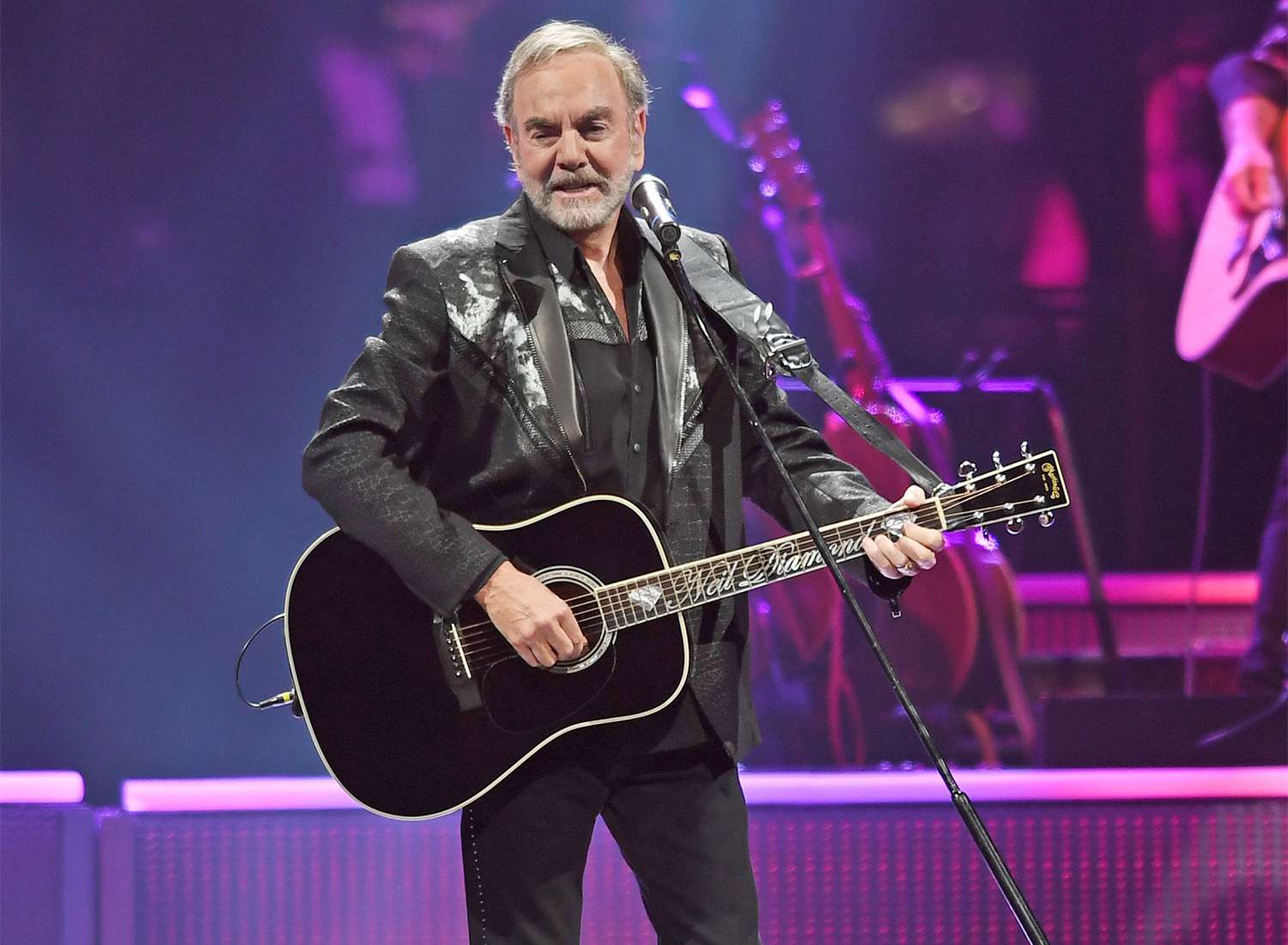Reason why is Neil Diamond’s mega-hit ‘Sweet Caroline’ is so intoxicating for sports fans

There will be a few certainties at the Euro 2024 tournament this summer, from pints of warm lager tossed in the air with each goal scored to the agony and ecstasy of a penalty shootout, but nothing will be as certain as the complete and utter rinsing of Neil Diamond’s 1969 hit ‘Sweet Caroline’ in pubs, clubs, and fanparks across England.
The track’s rise to maddening ubiquity among English sports fans is well-documented: at Euro 2020, following England’s comprehensive 2-0 home victory over their imagined eternal rivals Germany, Wembley DJ Tony Perry was tasked with amping up the party following the customary post-match spin of Baddiel and Skinner’s England anthem ‘Three Lions’. After considering ‘Vindaloo’ by Fat Les, he ultimately chose ‘Sweet Caroline’. “It just felt right,” Tony told the Daily Mirror in 2023.His instincts proved true. The stadium exploded in a chorus of “BA BAAA BUM,” which became a sort of unofficial anthem for the rest of the tournament. By the time the Lionesses won the Women’s European Championship the following year, the song had firmly embedded itself in the English consciousness; nowadays, you can’t go an evening in a provincial town without hearing someone stumbling their way through it on karaoke.
The simple melody and uplifting message of ‘Sweet Caroline’ captivate more than just English speakers. In 2009, Austrian artist DJ Ötzi, of ‘Hey Baby’ fame, released his rendition of the track, with the video featuring a frenzied audience of ruddy-faced Europeans shouting along to every word. Belgian football fans were caught on camera warbling the chorus during Euro 2016. The Bayern Munich squad required Georgia Stanway to perform the song as part of her introduction to the Frauen-Bundesliga team. It is certainly a song that crosses borders.
Of fact, its success among English supporters is merely the most recent episode in the song’s lengthy sporting history. In America, both the NFL’s Carolina Panthers and the MLB’s Boston Red Sox, whose DJ started it all by playing the song at Fenway Park in 1997, blast it at every home game. Northern Ireland football fans have been singing it since 2005, and Reading FC started using it after their record-breaking 106-point Championship season in 2006. Arsenal, Aston Villa, Wales, and Scotland have all belted it out at some point. Away from the pitch, boxing promoters Matchroom play it before fights, and Tyson Fury enjoys serenading the fans with it.
I first became aware of the song in the 1990s at family parties in Liverpool, where, as a bleary-eyed youngster up well past my bedtime, I’d be subjected to my uncles, aunts, and second cousins crowded around my father and his guitar, drunkenly working their way through the sixties hit, filling in all of the ad-libs with aplomb and repeating the last chorus four times just for good measure. In the years that followed, ‘Sweet Caroline’ became for me like those gloriously mundane singalongs ‘Hi Ho Silver Lining’ and ‘(Is This the Way to) Amarillo’ – music that, despite never deliberately choosing to listen to them in their entirety, had burrowed themselves deep into my subconscious.
But what is it about ‘Sweet Caroline’ that has made it stick in my head and appeal to English sports fans? To try to obtain an answer to my question, I politely emailed Neil Diamond’s spokesperson. I was thinking, “Mr. Diamond would be up for answering a few questions about his hit?” How he composed it, what he did musically in it, and what it means to him – but, first and foremost, was he aware of how the song has invaded practically every element of British athletic culture? Ten minutes later, I received a reply. The email stated, “Yes”. “He is aware” . And that was all.Clearly, I would need to use my A-level Music expertise and conduct some analysis on my own.
“Is Mr Diamond aware of how the song has permeated almost every aspect of British sporting culture?”
“Yes, he is aware.”

The song clocks in at a palatable 3 minutes and 21 seconds and features all the hallmarks of the best crowd pleasers: a wordless call and response in the descending brass section on the chorus, a pre-chorus that demands shaky hands to slowly lift upwards as it crescendos, and saccharine, optimistic lyrics that cry out to be mindlessly screamed arm in arm with a stranger.
Melodically, ‘Sweet Caroline’ is all about simple melodies, tension and release within the limitations of only a few notes. Following an entrance with a repeated three-note phrase that stacks up harmonically with each iteration, the verse plods along in a traditional I-IV-I-V pattern in the key of B major (B, E, B, F#). When the pre-chorus begins, the song comes to life. Suddenly, the bass, guitar, and light touches of brass are joined by a chorus of rising tremolo strings, which broadly follow Neil’s vocals. The introduction of G#m (played with the bass remaining on a B) in the second bar of this pre-chorus creates tension, which is eventually resolved by the euphoric, incredibly major, I-IV-V (B, E, F#) chorus – a chorus that emphatically begins on the first beat of the bar and is admittedly incredibly satisfying to sing (there’s a reason Diamond switched the lyrics from “Sweet Marcia,” after his wife, to the eminently more scannable “Caroline”). The verse vocal melody has only six different notes. The pre-chorus number is five. The chorus is rather complicated, with seven separate musical notes.
This melodic simplicity has helped drive it into the pantheon of football chants, joining ‘Seven Nation Army’ (5 separate pitches), ‘Sloop John B’ (7 distinct pitches), and ‘Freed From Desire’ (5 distinct pitches). Every effective football chant must be able to be shouted – often by swarms of gruff, tuneless males – thus a song with melodic intricacy would never gain popularity.That is why the game is named after basic, rhythmic patterns that repeat and extend harmonically – ‘Guantanamera’, ‘Allez, Allez Allez’, or, in a rare example of high culture meeting terrace, Giuseppe Verdi’s ‘La donna è mobile’ from his 1851 opera Rigoletto. It’s why New Order’s ‘World In Motion’, indisputably the best England song, never caught on in the stands. And, I suppose, it’s also why Ant & Dec’s ‘We’re on the Ball’, arguably the worst England song, never did. Thank God for it.
Something changed for England following Gareth Southgate’s appointment as manager in 2016. Following the national team’s decent performance at Italia ’90, a number of high-profile coaches came and went, overseeing some of the most brilliant groups of players the country has ever produced. The profligacy of the so-called Golden Generation of the early 2000s, combined with a destructive tabloid media more focused with WAGs, excess, and pulling players down, had put fans in a strange limbo.

England did qualify for tournaments, and the people reacted with a peculiar mix of exceptionalism, swagger, and self-doubt.Everyone seemed to know the score; they had seen it all before. On the other hand, it was clear that they were finally returning home. Maybe. Since 2000, the national team’s tournament record has been dismal: elimination from the group stages of Euro 2000, elimination from the quarterfinals of 2002, 2004, and 2006, failure to qualify in 2008, elimination from the round of 16 in 2010, elimination from the quarter-finals (2012), group stage (2014), and round of 16 (2016).
But then Southgate was appointed, just around the time the last of England’s so-called Golden Generation retired. In their place, a new crop of hungry, humble players emerged, unconcerned about the stringent club allegiances that reportedly blighted past England managers’ regimes. Southgate brought decency and decorum to the squad. Suddenly, this was a team worth being proud of. Football was, and some argue still is, essentially pragmatic, relying on a tight defence, hard labor, and set-pieces. Despite its dullness, it was effective: England finished fourth in 2018, second in 2020, and only lost in the quarterfinals to eventual winners France in 2022.
In many respects, the outcomes were secondary to the sensation of a nation banding together, shoving red flares up each other’s arses and throwing plastic pint glasses into the air whenever possible. It’s no surprise that England’s new anthem is a song about togetherness, about “hands touching hands” and all the pure, uncontrolled joy that comes with it. Baddiel and Skinner’s self-deprecation is gone, and replaced by a quiet belief. After years of grief, posturing, and resentment, it’s once again enjoyable to support the national team. Heading into Germany 2024, with England the bookies’ favourites at 3/1 and the echoes of Neil Diamond’s strangely gruff voice seeping out of the country’s pubs, the good times never looked so good.


